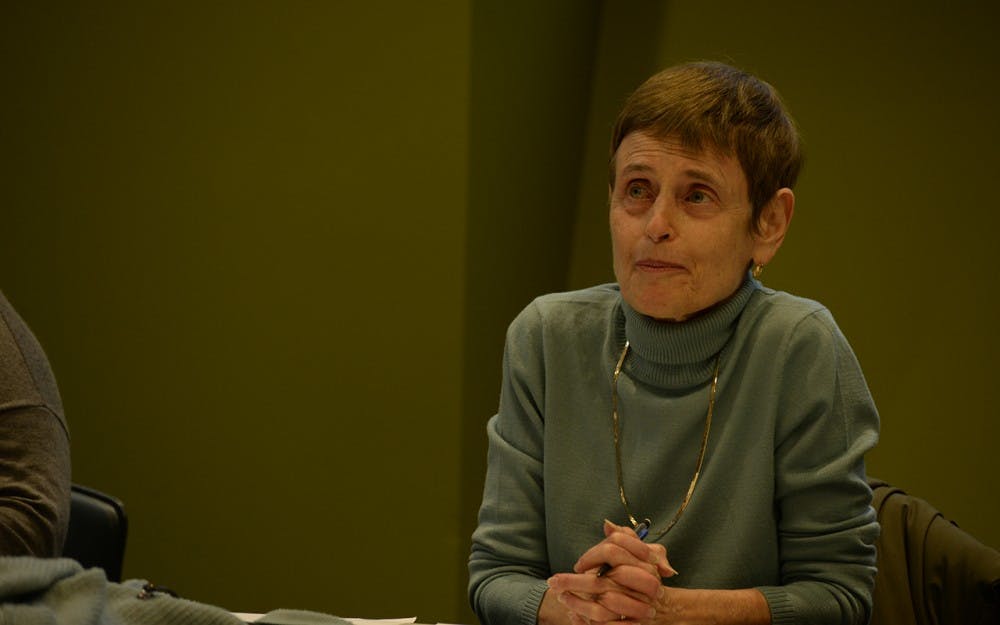Several experts on Russian relations and cybersecurity talked Tuesday afternoon in the Global and International Studies Building about Russia’s involvement in the recent United States election.
The panel, organized by the Center on American and Global Security or, more specifically, Tagore Professor Sumit Ganguly, the director of the organization, was titled “Lessons and Next Steps after the 2016 Election” and was part of the “Securi-Tea” series of events, where issues of national security are discussed over a cup of tea.
“This is something of extraordinary importance,” said Ganguly, who also moderated the panel.
The panelists were Associate Professor of Political Science Dina Spechler, Associate Professor in the political science department Regina Smyth and Associate Professor of business law and ethics in the Kelley School of Business Scott Shackelford. The event involved each panelist speaking for 10-15 minutes before the conversation would open to questions from the audience.
Off to the side were a small selection of cookies, as well as Snapple, Arizona and Gold Peak tea for attendees to drink.
When Ganguly finished his discussion, Spechler was the first panelist to speak. She spent several minutes talking about Russia’s involvement from her perspective.
She laid out the evidence — the investigation by government agencies on the allegations of Russian involvement in U.S. politics.
“For the purpose of this talk, I’m going to assume these events happened,” she said.
Spechler said Russian President Vladimir Putin’s goal was to undermine American’s faith in their government and to institute a leader with sympathetic tendencies toward Russia.
That person, Spechler said, was not Hillary Clinton.
In fact, she said Putin blamed Clinton for several massive Ukraine-style protests that occurred in Moscow and other Russian cities recently, the Russian president, she said, claimed she set the tone.
“I think, for him, she represented a threat,” Spechler said.
Then-presidential candidate Donald Trump, she said, had been making many complimentary comments about Putin, calling him things like a superior leader.
Spechler said there’s no way to know for certain whether Russian intervention ultimately swayed the election but that, considering how close the results were, it may have happened.
“I think it’s disturbing,” she said.
Around the room, some participants took notes while others nodded in agreement with the panelists.
Smyth followed Spechler by saying the U.S. is in a context that’s not exactly the Cold War, but a different type of global conflict which involved not just international competition but intervention in politics on both sides.
“For Russia, there has been an escalation of intervention in other countries,” she said. “This corresponds to heightened use of cyber warfare.”






